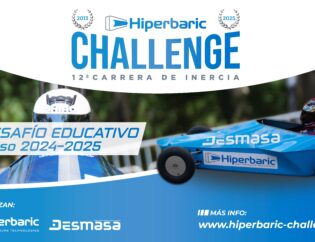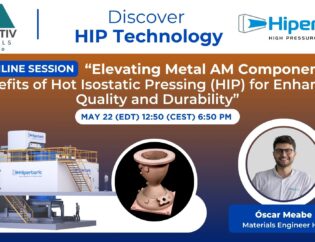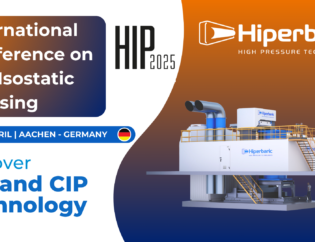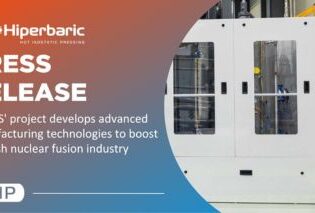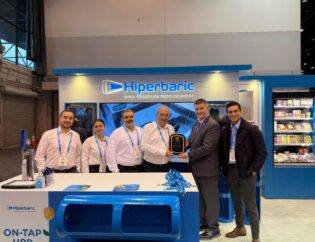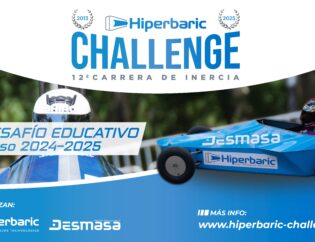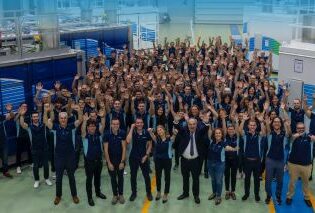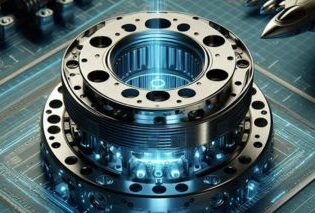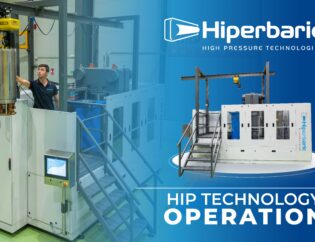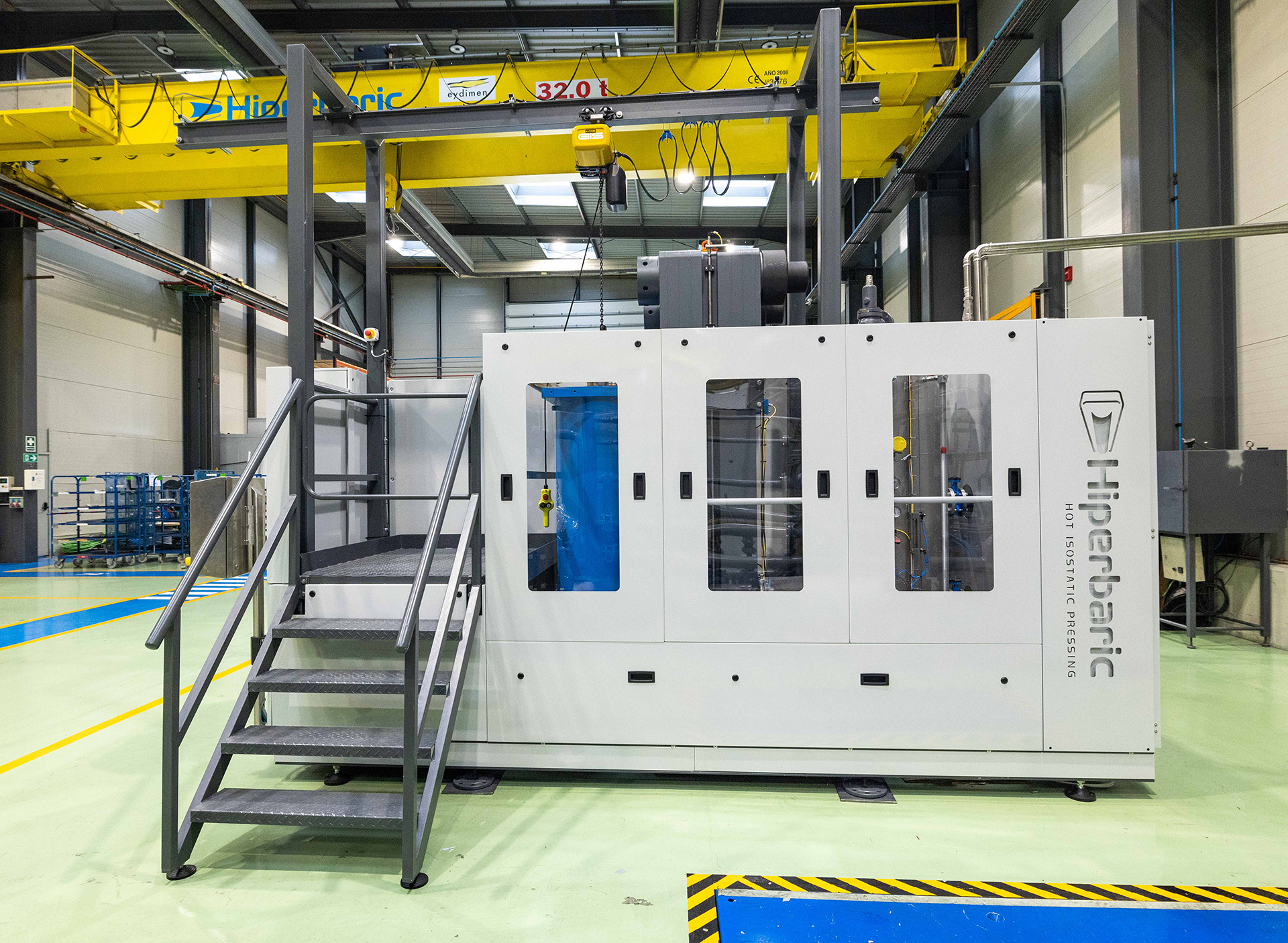
- Spain, by financing the DioSiC project (acronym of Diodo & SiC: silicon carbide), aims to lead its technological independence with a new unique material, polycrystalline silicon carbide, for use in the most demanding applications of high-power electronics, and applicable to industry, communications, renewable energy and electric vehicles, among others.
- The DioSiC project, which is part of CDTI’s PERTE Chip Missions call, is led by Nanoker, a company specialized in materials. Hiperbaric, contributes in a differential way its technology of high isostatic pressure equipment (HIP), and Fagor Electrónica its knowledge in chip manufacturing.
- The new material investigated in the project will allow a 30% reduction in chip costs and a 35% increase in efficiency to make its production economically viable.
DioSiC project, a consortium formed by the Spanish companies Hiperbaric, a world leader in high-pressure technologies; Nanoker, a Spanish manufacturer and supplier of advanced nanocomposite ceramic products; and Fagor Electrónica, specialized in electronic and digitalization solutions, allows pioneering research in the development of semiconductor chips whose raw material (SiC) will be processed by Hot Isostatic Pressing (HIP) within the PERTE of Microelectronics and Semiconductors, known as PERTE Chip.
The project is being developed in collaboration with several research centers and subcontracted technology companies. The Spanish government is financing 68% of the 3.3 million euro R&D project, which is part of the PERTE Chip Missions call of the Center for Technological Development and Innovation E.P.E. (CDTI). The DioSiC project is part of the Strengthening of R&D&I in cutting-edge microelectronic design and alternative architectures.
Its research will allow the creation of a new material of 100% Spanish technology that is not yet commercially available anywhere in the world, with unique characteristics for use in high-power electronics.
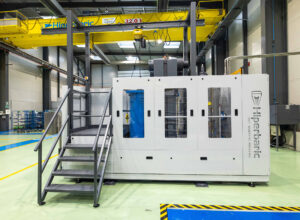
Specifically, polycrystalline silicon carbide (SiC) substrates will be developed and subjected to high isostatic pressure (HIP) – around 2,000 bar pressure and 2,000ºC temperature – to obtain robust and defect-free SiC chips. The new semiconductor chips will enable a 30% reduction in the production costs of high-power components, improving their efficiency by 35%, which will make their production economically viable.
Their applications are aimed at sectors such as the industrial sector with the manufacture of electric vehicles; the energy sector for the field of renewables, or the computer and communications sectors, among others. “We have before us a scientific and technological challenge of great magnitude that will allow us to develop, for the first time at international level, more efficient and economical high-power electronic components,” explains Andrés Hernando, CEO of Hiperbaric.
“We have before us a scientific and technological challenge of great magnitude that will allow us to develop, for the first time at international level, more efficient and economical high-power electronic components”
The main objective of the project is to overcome the current limitations of the use of silicon carbide with the manufacture of polycrystalline silicon substrates, manufactured using the SPS (Spark Plasma Sintering) technique, with the subsequent high isostatic pressure treatment to ensure that Spain is able to produce these innovative chips with reasonable deadlines and costs, making it possible to meet the demand of a growing market and avoid technological dependence on third countries. The treatment of silicon carbide (SiC) using HIP technology significantly improves its properties by eliminating any possible defects in polycrystalline SiC wafers.
In the words of Ramón Torrecillas, CEO of Nanoker, “we are one of the few European companies to control the SPS technology to manufacture the base material of the chips. We collaborate with Hiperbaric to propose that new material that requires HIP technology to achieve the quality needed for Fagor Electrónica’s next generation of high-performance chips.”
In electronics and semiconductors, SiC-based chips already offer several advantages over silicon-based chips, such as higher efficiency, faster operation and the ability to operate in high temperature and high power conditions. With the high-quality polycrystalline SiC substrates created by the Spanish consortium, these devices can be produced much more cost-effectively and efficiently.
20% market share by 2030
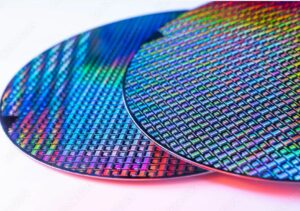
Every year 1 billion microchips are manufactured in the world, and only 10% are of European origin. The goal of the European Chip Act is to reach a 20% market share by 2030, and Spain is also working with the promotion of projects such as DioSiC through PERTE Chip.
“The semiconductor crisis has come to paralyze the European industry, in particular automotive, electronics and IT. This Spanish project is highly relevant to the goal of greater technological independence,” Hernando adds. Currently, the bulk of chip production is in Asia, specifically in China, Japan, South Korea and Taiwan.
“The semiconductor crisis has come to paralyze the European industry, in particular automotive, electronics and IT. This Spanish project is highly relevant to the goal of greater technological independence”
DioSiC project, with an allocated budget of 3.3 million euros, is part of the Strategic Project for the Recovery and Economic Transformation (PERTE) of Microelectronics and Semiconductors, PERTE Chip approved in 2022 and endowed with a public investment of 12.25 billion until 2027. The money is intended to create microchip fabs and boost the entire value chain, from SMEs and tech startups to the electronics industry that consumes those semiconductors.
Eliminating defects
In Spain, the Burgos-based Hiperbaric is the only national company that manufactures HIP equipment. It operates in the international market only in competition with 3 other companies. This revolutionary technology improves the mechanical properties, resilience or ductility of high performance parts, brings great benefits by eliminating their porosity and increases resistance to corrosion. In addition, HIP eliminates porosity and other internal defects, makes high-performance materials more consistent and enables the recovery of defective parts.
About DioSiC
DioSiC is a consortium formed by 3 companies (Nanoker, Hiperbaric and Fagor Electrónica); and is supported by 3 CSIC centers (Centro Nacional de Microelectrónica (CNM), Centro de Física de materiales (CFM), and Centro de nanomateriales y nanotecnología (CINN)) and a technology center (CEIT). The German Fraunhoffer Institute has two research centers (Institute for Integrated Systems and Device Technology -IISB; and Center for Silicon Photovoltaics-CSP).


